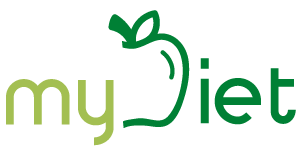Nutrition for Children
Nutrition for children is based on the same principles as nutrition for adults. Everyone needs the same types of nutrients, such as vitamins, minerals, carbohydrates, protein, and fat. However, children require different amounts of specific nutrients at different ages.
When to Consult a Dietitian:
- When there is a problem with their weight (either increased or decreased).
- When there is a nutritional deficiency, such as iron or vitamin D deficiency.
- When there is a chronic condition such as hypercholesterolemia, diabetes, or celiac disease.
- When the child is also engaged in sports and needs strengthening.
- When there is suspicion of a nutritional disorder.

My Child Is Overweight. What Should I Do?
Increased weight in children is usually a combination of poor dietary habits and lack of physical activity. Dieting is not recommended for children because we cannot risk the healthy development of the child due to possible lack of nutrients. Instead, our goal is to maintain their weight so that, with their increasing height, their weight falls to normal levels.
In terms of intervention, a somatometric and dietary assessment of the child should first be done to identify the extent of the problem and the basic problematic elements in their diet. Then, a balanced diet is formulated, and dietary goals (e.g., increasing fruit and vegetable intake) are set in collaboration with the child, with their progress being regularly monitored.

How is a Session with a Child Conducted?
A comprehensive dietary assessment is an important first step in understanding the child’s nutritional needs. We will evaluate the child’s growth, medical history, and dietary intake. Based on this information, we will work together with the parents to set goals and strategies to support the child’s diet. Sometimes, the parent may need to remain in the waiting room, and the assessment may be conducted without their presence so that the child feels comfortable with the dietitian.
Then, we will develop a dietary program that takes into account the child’s nutritional requirements, food preferences, medical needs, and developmental requirements. We will work together with the parents to achieve the best possible outcome for the child’s development.

The participation of parents and caregivers in this effort is crucial.
“Investing in early childhood nutrition is a surefire strategy. The returns are incredibly high.”

